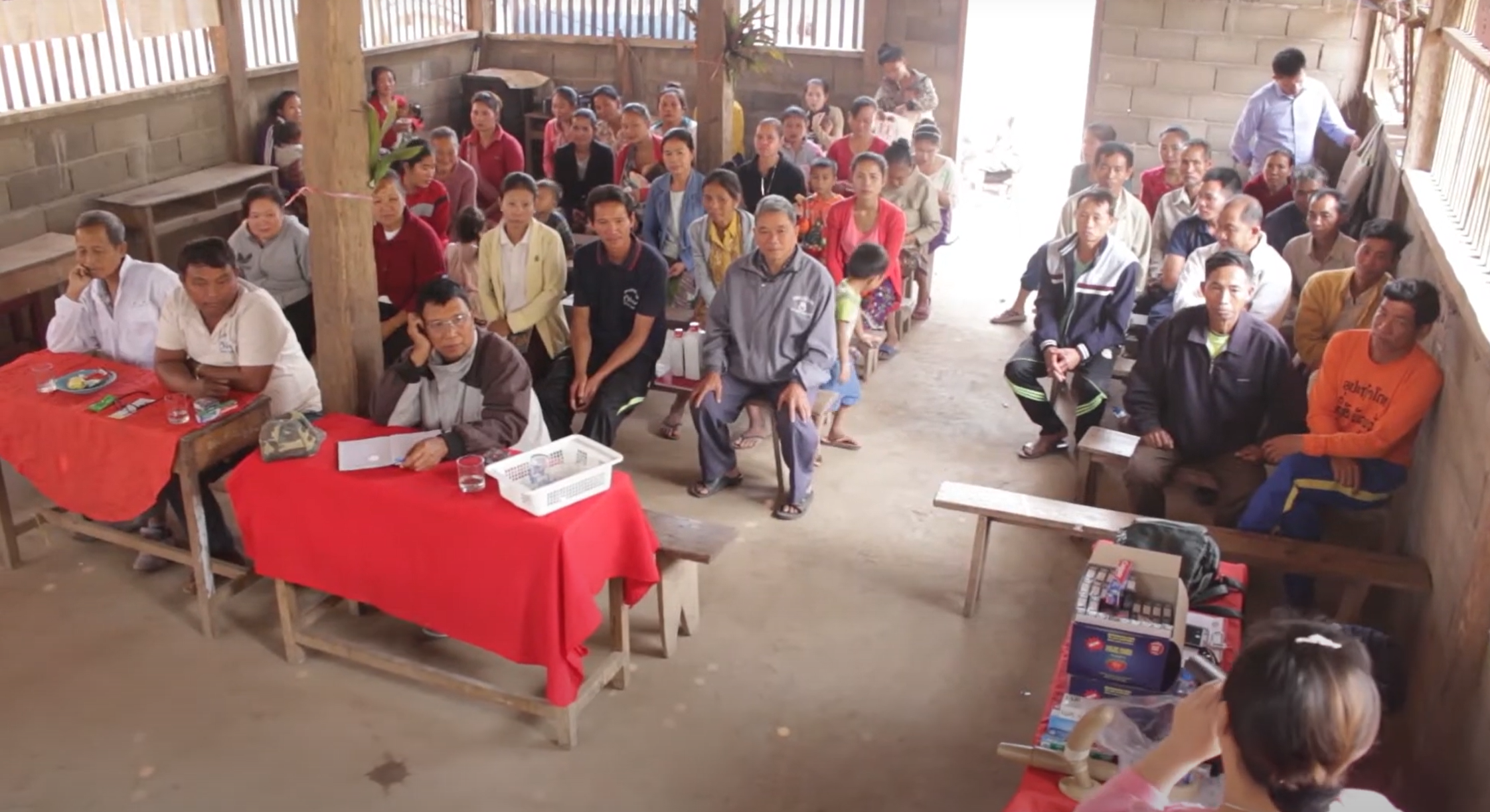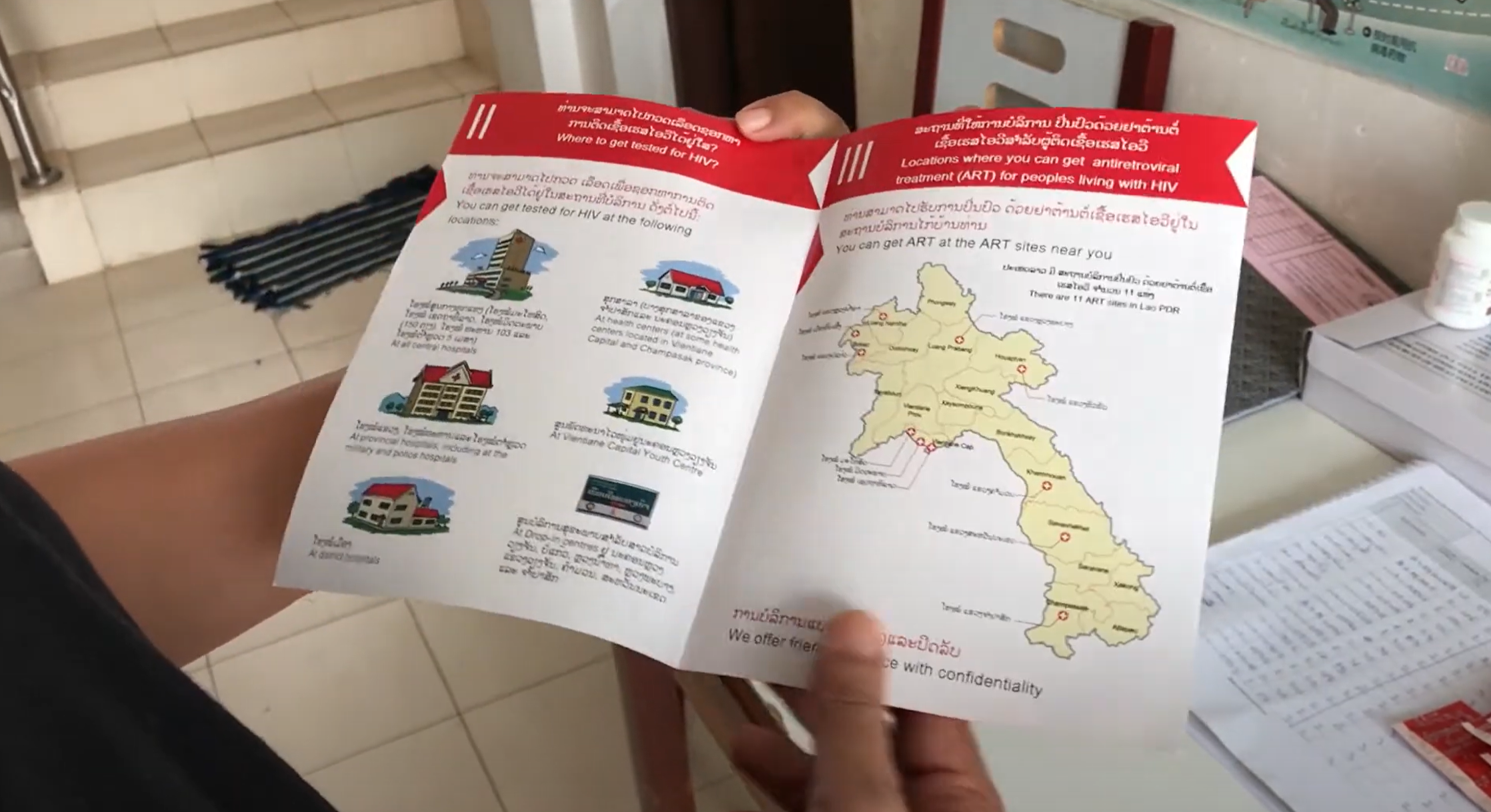Beyond Medicine: Community-Led Health and Climate Resilience in Laos
Address structural inequalities
Devolve decision making
Flexible programming and learning
Invest in local capabilities
Organization: Association of People Living with HIV/AIDS
2025 LOCAL ADAPTATION CHAMPIONS AWARD FINALIST
In Laos, people living with HIV and marginalized groups face challenging barriers to care. Stigma in hospitals, fear of discrimination, and limited resources often force many to delay or avoid treatment, leaving them isolated, vulnerable, and in declining health.
Climate change now adds another layer of complexity. Floods cut off access to clinics, droughts strain food security, and heatwaves intensify both physical and mental health risks. For vulnerable communities, the consequences are devastating. Treatment regimens are interrupted, crop failures drive hunger, and trauma deepens when homes and livelihoods are lost to extreme weather. These realities demonstrate that health and climate resilience cannot be separated, they are deeply intertwined.
Yet most systems are not designed with this intersection in mind. Traditional health responses often overlook climate disruptions, while climate adaptation strategies rarely account for the needs of people living with HIV or other marginalized groups. This gap leaves thousands at risk of being forgotten in moments of crisis.
Bridging the Gap Between Health and Climate Resilience
Association of People Living with HIV/AIDS (APL+) has responded by integrating climate resilience into its health programming. When floods isolate communities, mobile health services deliver care directly. When droughts and extreme weather spark anxiety, peer counselors trained in mental health first aid provide support. During emergencies, APL+ distributes emergency kits with food, hygiene items, and essential medicines, ensuring continuity of care even in crisis.
To date, APL+ has provided more than 1,200 emergency kits, supported over 5,000 people, and trained 250 peer volunteers to respond quickly during climate shocks. By weaving together health and climate adaptation, APL+ helps communities survive disruptions and recover with strength.
Resilience is not built through medicine alone. It requires continuity of treatment, trusted relationships, and systems that adapt to local realities. Communities are actively engaged in identifying risks and mapping out solutions. This ensures that adaptation strategies reflect lived realities, not outside assumptions. And when disasters strike, social protection measures like food support, transport, and hygiene kits reduce immediate burdens, helping people remain healthy, stable, and connected to care.


Cultivating Community Leadership to Strengthen Health Systems
People living with HIV and other marginalized groups are not passive recipients of aid but active partners shaping every stage of the work with APL+. They identify priorities through local dialogues, decide how funds should be spent, and represent their communities in discussions with government authorities. Peer volunteers carry out outreach across 12 provinces, provide counseling, and lead emergency responses. Through Community-Led Monitoring, communities themselves hold health systems accountable and ensure that services evolve in line with their evolving needs.
“This initiative didn’t just give me access to medicine. It gave me dignity, strength, and a purpose,” says Ms. Noy, a woman from Savannakhet who received support from APL+. Ms. Noy has since become a peer volunteer herself and now provides support for her community.
This model of community-driven leadership is not only effective, but also scalable. Looking to the future, APL+ plans to extend its reach to five additional provinces, particularly in rural and flood-prone areas where climate risks are highest. Mental health support will be expanded with the training of 100 new peer counselors, focusing on youth, women, and LGBTQ+ communities who often carry the heaviest burdens of stigma and environmental stress. Community-Led Monitoring will be scaled up to 10 hospitals, embedding accountability deeper into the health system, while local organizations will be strengthened with grants and training so they can lead their own adaptation and health initiatives.
By equipping community members with training and support, and valuing the power of their lived experience, APL+ is cultivating local leadership that shapes resilience from the inside out.
Standing Against Stigma and Climate Change
In Laos, the combined pressures of health inequities, stigma and climate change threaten to leave the most vulnerable without care. APL+ is showing another way forward, one centered on dignity, trust, and community leadership. By training peer volunteers, expanding mental health support, and strengthening local organizations, APL+ ensures that people living with HIV and marginalized groups are not only protected in times of climate crisis but are leading the solutions themselves.
Each peer counselor trained, each emergency kit distributed, and each community monitoring effort represents more than just service delivery. It is a step toward shifting power into the hands of those most affected. As APL+ expands to new provinces, it is embedding resilience within communities and strengthening their ability to withstand the challenges of both stigma and climate change.